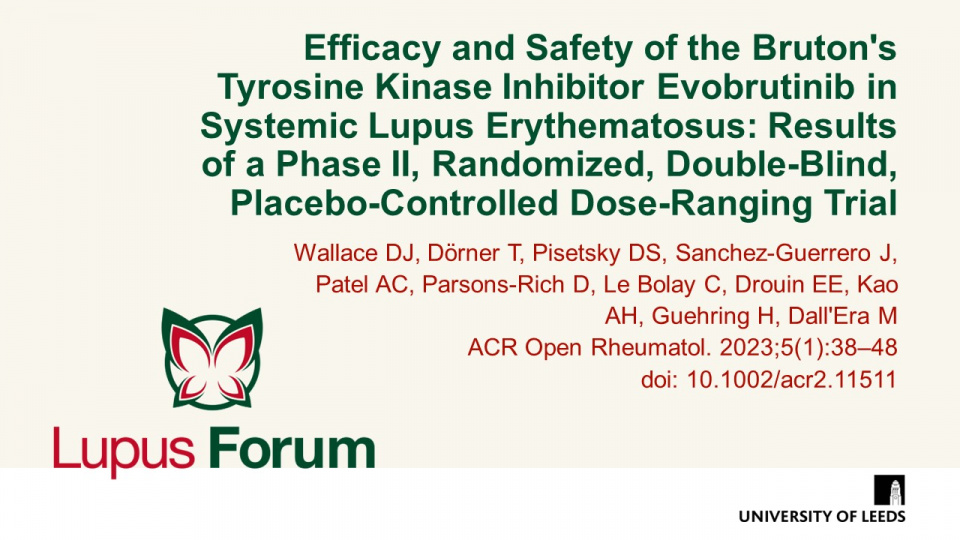Publications
Find coverage of the latest original articles on Lupus, focusing on those with data on therapeutic interventions and those that have clinical impact.
January 2023
Efficacy and Safety of the Bruton's Tyrosine Kinase Inhibitor Evobrutinib in Systemic Lupus Erythematosus: Results of a Phase II, Randomized, Double-Blind, Placebo-Controlled Dose-Ranging Trial
ACR Open Rheumatol. 2023;5(1):38–48 doi: 10.1002/acr2.11511
Results of a phase II trial of evobrutinib suggest that Bruton's Tyrosine Kinase (BTK) inhibition is not an efficacious therapeutic intervention over standard of care therapy for patients with SLE.


